A Few Feminine Metaphors Don't Change the Fact that God Is Our Father. And That's Not "Scary." That's Good News.
A Few Feminine Metaphors Don’t Change the Fact that God Is Our Father. And That’s Not “Scary.” That’s Good News.
Christian ministers are ministers of the Scriptures. We are people of the Book. Broken and troubled people come to the church seeking restoration, healing, and hope. Ministers of the gospel should never fear the Scriptures.
This is certainly true of the personal ministry of the Word. Biblical counseling is personal. It is an intensive discipleship relationship that addresses the most sensitive of issues. The very nature of a counseling relationship means it is not public. It is typically in a one-on-one setting without cameras or stage lights. This is as it should be.
Yet occasionally, the broader public gets a peek behind the curtain. There are moments when what takes place in the counseling room is brought to light and put forward for evaluation.
Such a moment happened within the past week when the Biblical Counseling Coalition (BCC) published a blog by Nate Brooks, a professor of counseling at Southeastern Baptist Theological Seminary. The blog was titled “When the Bible’s Metaphors Are Scary.”
For months now, there has been a swirling controversy surrounding Southeastern Seminary and its biblical counseling program. This has caused a great deal of debate within the larger counseling movement. You can read more about the issues at play in this debate in this fulsome article by Dr. Heath Lambert, Six Crucial Confusions of the New Integrationists.
Brooks’ recent article shows that this controversy is not over. The blog was quickly met with widespread concern and was taken down by the BCC. However, at least one BCC council member, Jason Kovacs, has publicly defended the post, along with the first executive director of the BCC, Bob Kellemen. Many others are asking why it was removed. Unfortunately, confusion still exists and clarity is sorely needed.
However, before the BCC took the article down (with no explanation), I was able to download it. You can find and read it in full here.
Brooks argues that the purpose of his blog is to deal with the difficulty that someone who grew up with a bad father might face in relating to God as Father. He begins by noting that “The Scriptures brim with all kinds of metaphors, similes, and word pictures to describe God and His work. God has designed us to resonate with imaginative ways of describing reality.” Brooks continues, adding that “Earthly fathers are intended to be images of this Great Father, yet some fathers are remembered not for their protection, provision, and kindness but for their self-centeredness, cruelty, and harm.” And then he comes to the main question that he endeavors to answer: “What do we do when a counselee’s experience of their father makes all fathers feel unsafe and untrustworthy?”
This question is important, and a trained biblical minister should be able to answer this question adequately.
But Brooks argues that one way to address this problem is by encouraging a person to think of the “motherly images” of God. He boldly asserts that “God pictures himself as our mother.”

While Brooks may be well-intentioned, this is deeply problematic. And I will explain why more fully below.
Brooks anticipates that some might be concerned about this ministry methodology. He writes, “We don’t want to let fear of people imagining a female deity or worry that we won’t be perceived as ‘complementarian enough’ to functionally clip the Bible into a smaller book.” He concludes by stating, “The Bible is deep and wide with metaphors and images about God and His work. Different counselees will connect more strongly with certain images over others as different personalities, different experiences, and many other factors influence the way they read the biblical text.”
Unfortunately, Brooks’ advice is both theologically aberrant and methodologically backward.
Unorthodox Theology
Brooks makes the theological error of assuming that “Father” is a metaphor for God which can be set aside for the sake of certain counselees. His blog fails to make clear that “Father” is not a metaphor for God. Fatherhood is the eternal personal relation of the first person of the Trinity. He is an eternal father to an eternal son and he also relates to all as Father. That’s his ontological identity, and it has economic implications. We are talking about the very essence of God and who He is.
Given this, Brooks’ article is premised on a trinitarian error. The parallel of God as Father to the metaphorical imagery of motherly actions is incongruent. The images of Isaiah 46:3-4, Isaiah 66:13, and Hosea 13:8 are not meant to imply that God is female in some sense. After all, God doesn’t have a body and is neither male nor female. The images are merely trying to explain through analogy how God relates to his people in the economy of redemption. They are descriptive of divine actions. Similes and metaphors for describing these divine actions are not meant to be substitutes for who God is ontologically and eternally. God does those actions toward his people according to who He is, namely as God the Father.
Brooks misunderstands the scriptural intent of these images. Consider that male Christians aren’t supposed to imagine themselves as women to relate to Christ as our bridegroom (Ephesians 5:25-33). The purpose of Paul’s marriage analogy is to be illustrative of the divine action of loving sacrifice.
Isaiah 46:3-4 describes how God nurtures and keeps his people. Isaiah 66:14 is an image describing how God comforts his people. Hosea 13:8 contains images of animal mothers and their protection of offspring. But none of these images are intended to name God’s essence in the way that “Father” does. The motherly language is a mere metaphor, a very limited analogy. “Father” names God’s essence without remainder.
To confuse metaphors with God’s essence is a serious error.
This error in theology is not novel. It has been well documented that naming God as “mother” is a classic liberal understanding of the Scriptures. The argument that “Father” is an image or metaphor for God is the argument that Amy Peeler makes in her book Women and the Gender of God. A robust treatment of this issue can be found in an excellent essay at Eikon, Theological Language and the Fatherhood of God: An Exegetical and Dogmatic Account, and a more popular level piece at The Center for Baptist Leadership, Classical Theism Versus “Mother God.”
These are no small matters, and much is at stake.
Therapeutic Methodology
Furthermore, Brooks adopts a methodology for ministry that is the opposite of the biblical authors. Jesus taught his disciples to pray “Our Father in Heaven…” and ministers should teach this as well (Luke 11:1-4; Matthew 6:9-13). We must demonstrate how God is a good Father, even if our earthly father was horrible. God is the standard, and it is wonderful to learn about him as the faithful, kind, loving “Abba” (Galatians 4:6). We should not shy away from this truth and try to make it more palatable by misunderstanding and neglecting it.
Brooks takes a person’s experience of a bad earthly father and makes that reality the controlling factor in his approach. He seeks to temporarily sidestep who God has revealed himself to be by distracting the counselee from God’s self-revelation as Father and then focusing on a handful of texts containing motherly metaphors.
Rather than letting the truth about God’s Fatherhood control his ministry practice, Brooks suggests that the counselee’s broken view of God’s Fatherhood should guide the process. He commits the error of therapeutic empathy and, in the process, neglects the very truths that will bring about real healing. It is the truth that will set us free, and the truth that sanctifies us (John 8:32; 17:1-3). The truth of God the Father should not be avoided.
The Way Forward
I am grateful the Biblical Counseling Coalition removed Brooks’ unorthodox blog post from their website. But this does not solve the problem, for at least three reasons. First, Brooks has not retracted the views he expressed in his post. Instead, he has defended it online. He posted, “For those who care: 1. The term Father in relation to God is ontological. It is also an image as he reveals himself to us. 2. There’s a difference between an article about systematic theology and an article about the counseling process. 3. If a client can connect well with God through feminine metaphors that God uses of himself in his word, then they will experience his kindness and love in a way that helps overwrite negative perceptions of the term father.”
These attempts at clarification do not remove the errors of the original post. The bottom line is that Brooks has still encouraged counselees to emotionally avoid the clear ontological language and teaching of the Scriptures about the essence of God and instead think of God as a “mother.” But, again, God as Father is not just an image or a metaphor in the same way that the Scriptures describe God’s actions in motherly language. The Fatherhood of God is not an image or metaphor derived from any earthly creation. Rather, the opposite is true. This is fundamentally different from the metaphorical language and imagery of “mother.”
Second, even though the BCC removed the post, as I mentioned above, there has been no explanation on their end as to why they did so. Do they think the article was unorthodox or not? If so, how did it get published? Are their editors actually in agreement with Brooks but simply don’t want to address the controversy for fear of exposing theological fissures in the organization? The biblical counseling community deserves answers.
Third, and finally, this is another cause for concern about what is being taught at Southeastern, particularly in their counseling courses. Is Brooks’ blog post indicative of what is happening in the seminary classrooms behind closed doors? Without clarification from Southeastern, we may never know.
To be clear, Isaiah 46:3-4, Isaiah 66:13, and Hosea 13:8 are wonderful passages of Scripture. The entire Bible is good for teaching and admonishment (2 Tim 3:16). The problem is that he is doubling down on the notion that “Father” can be used of God as a mere metaphor. Furthermore, sound practical theology always flows from sound theology of systematic theology. It has been well established that biblical counseling is a theological endeavor.
But Brooks has made a serious theological and methodological error, even if he does not view it that way. He continues to defend himself, posting that “Everything can’t be said in every article. Let’s read each other with charity, not with a hermeneutic of suspicion.” The problem, according to Brooks, is not his mistakes. Rather, the problem is the pastors and ministers who have pointed out his errors.
This is not the right and Christian way to address a significant theological error from a Southern Baptist seminary professor. The way forward is not to double down on an unorthodox position, but rather to admit fault and repent.
His blog has allowed us to see behind the curtain and witness what one professor at a Southern Baptist seminary teaches in the classroom. Without further retraction or clarification, this peak reveals that all is not well in the Southern Baptist counseling community.
Christians need to counsel in a way that doesn’t run away from the Fatherhood of God. Ultimately, we should not be scared of how the Scriptures speak about who God is. We should embrace it without apology. God is not just our Father; He is our good and perfect Father, who loves us, in Christ, more than we can imagine.
And perfect love casts out fear (1 John 4:18).
Share This Story

